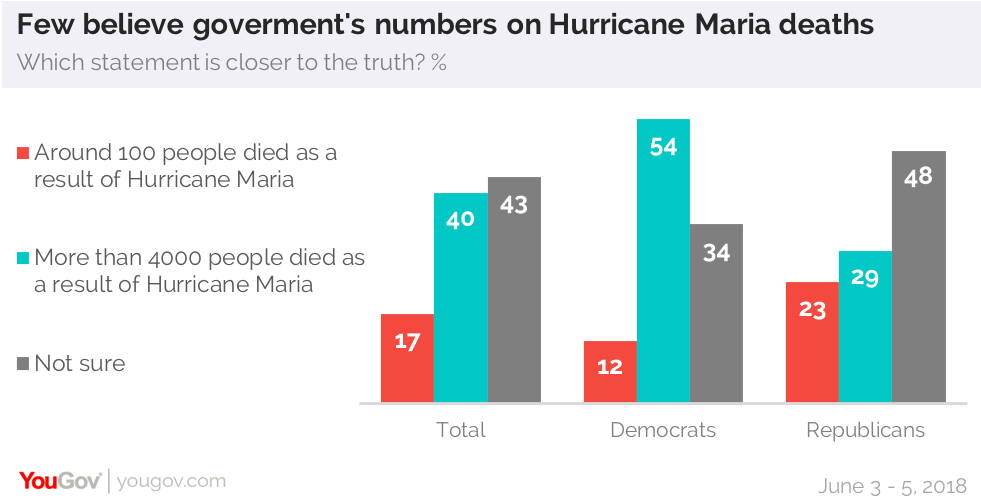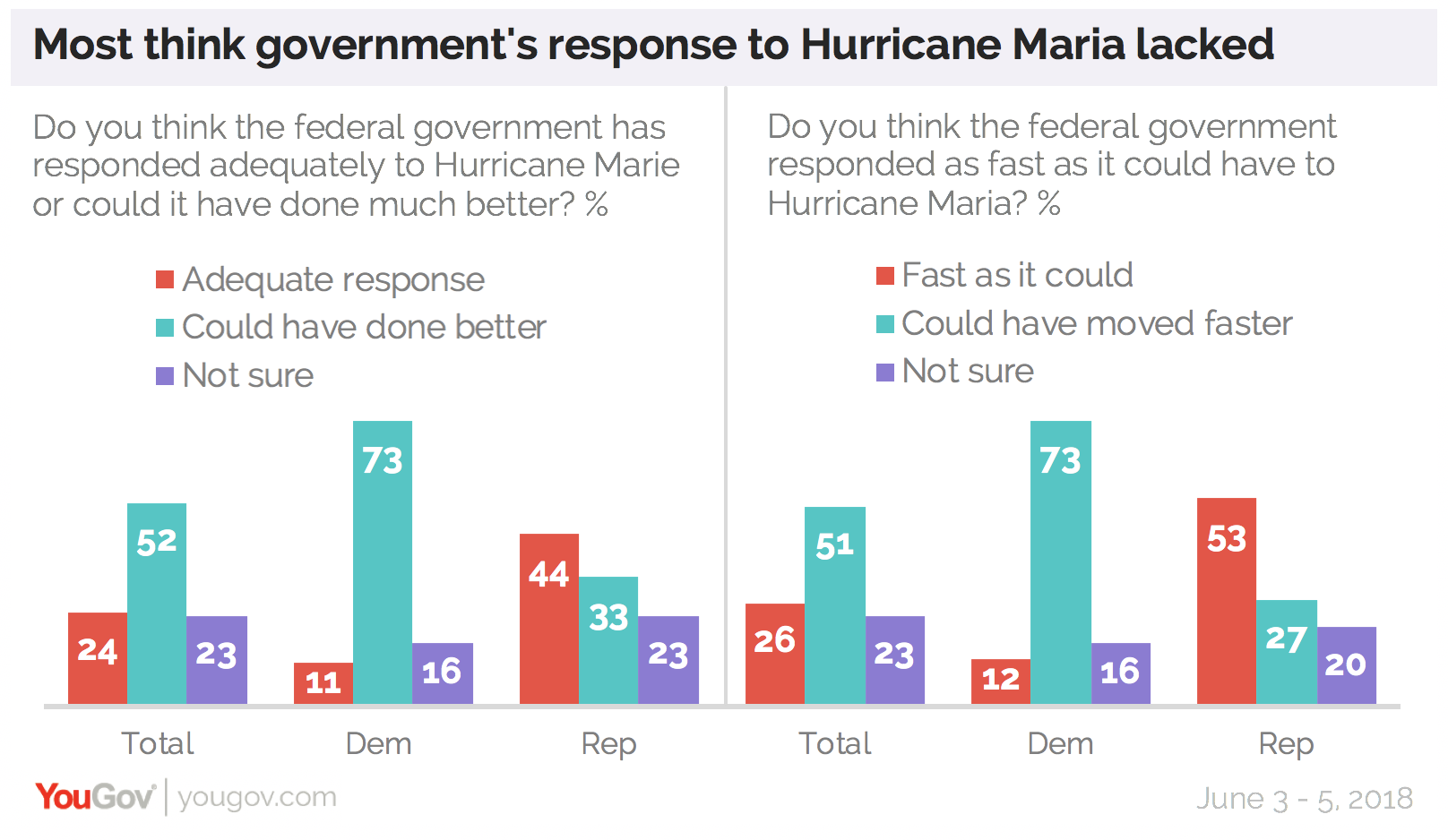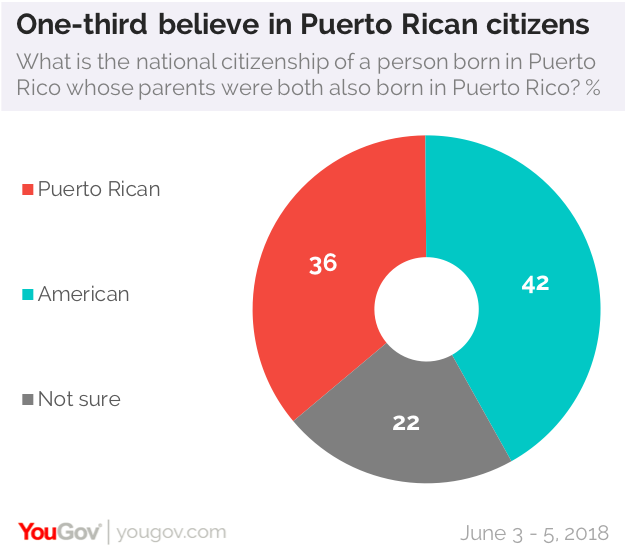Most think the federal government’s response to Hurricane Maria could have been better
More than twice as many Americans accept the Hurricane Maria death toll study which estimated more than 4,000 deaths could be attributed to the storm than believe the official Puerto Rican government count of less than 100 deaths from the hurricane. In the latest Economist/YouGov Poll, the public gives the federal government poor marks for its performance, but remains unsure whether or not the Commonwealth’s unique status is the reason for this.

There are party differences when it comes to the number to believe, with Democrats the most skeptical of the official figures, and most likely to accept the estimates from the study conducted by researchers at Harvard and other institutions. Those with some personal knowledge of the hurricane are even more skeptical: a majority of those who know someone affected by last fall’s storm believe the number of deaths exceeded 4,000.
This week, 52% of Americans think the federal government could have done a better job than it did responding to Hurricane Maria, much the same response as in an Economist/YouGov Poll conducted shortly after the hurricane struck the island. From the beginning, the public’s response to how the government handled Maria is quite different from the reactions earlier last fall to Hurricanes Harvey and Irma. For those storms a majority believed the federal response was adequate, and that the government responded as fast as it could. Looking back at Maria, twice as many think the government was too slow to respond as think it acted as fast as it could.

Republicans are more positive about the adequacy of the federal government’s reaction, though a third still say it could have done better. A majority of Republicans think the government could have moved faster.
Americans are divided (37% to 37%) on whether the non-state status of Puerto Rico had anything to do with the speed of government response, with Republicans the most likely to say it made no difference. But those who think the response was too slow think it did matter. By two to one, they say that the government would have responded faster if Puerto Rico were a state.

The unusual status of Puerto Rico confuses many Americans when it comes to the nationality of its residents. More than a third of the public say the citizenship of someone born in Puerto Rico to parents also born in Puerto Rico is Puerto Rican, not American. 42% correctly describe that person as an American citizen.
Those who correctly labeled those born in Puerto Rico as Americans are more critical of the government’s response, and are more likely to believe it would have been faster if the Commonwealth were a state.
Read more topline and tables results here.
Photo: Getty







